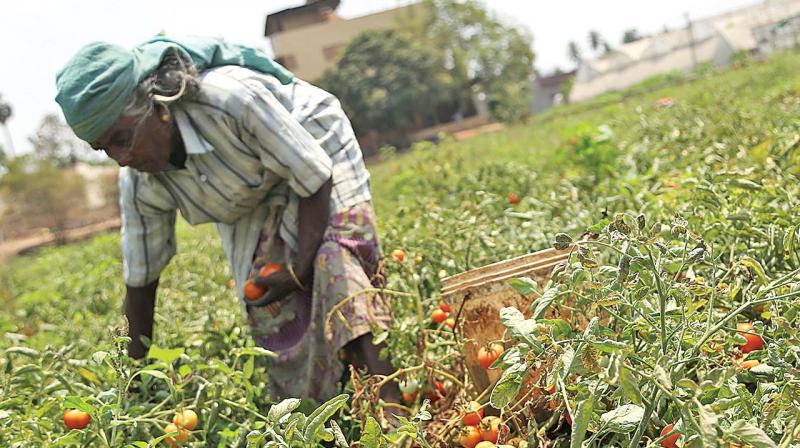Why not robots, AI in fields?
Tech can help double farmers' income by 2022.

Coimbatore: Prime Minister Narendra Modi's dream of doubling farmers’ income in our country by 2022 is being debated all over. While the opposition look at it as ‘publicity trick’, policy makers, scientists and academicians in the agriculture sector opine that it is about time technology is used in our fields to achieve better yields that will generate income for the farmer and will feed India's one billion plus population. As far as Tamil Nadu is concerned, lack of rainfall and climatic change are the biggest challenges the state is facing when it comes to achieving better agricultural productivity.
Dependency on rainfall for irrigation is high. “The state receives anywhere between 600 mm to 800 mm of rainfall that is unevenly distributed. Inter-state water wars will be fought in the future. Rise in temperature is yet another challenge that the state has to deal with. It is predicted that by 2050 there will be a two degree rise in the overall temperature in the state. Climate change can be met with diversification in agriculture,” Dr Trilochan Mohapatra director general of the Indian Council of Agricultural Research (ICAR) said.
What worries him is the fact that who will take up agriculture as a profession in the future? By 2050, India will face the challenge of having to feed 1.6 billion people. “Youth of India must be transformed into entrepreneur of tomorrow as the future demands innovation in agriculture. Currently, technology is not being successfully transformed from lab to land. It is the youth who can bridge the gap,” he says.
Robots must be used in our fields. Simultaneously, farmers must explore the option of automated control and artificial intelligence (AI) opportunity in agriculture. On a large scale, India is yet to take advantage of 'Site Specific Crop Management (SSCM)', a crop management concept that is based on observing, measuring and responding to inter and intra-field variability in crops, he says.
The aim of satellite farming, better known as ‘Precision Agriculture (PA)’ is to define a decision support system (DSS) for whole farm management with the goal of optimizing returns on inputs while preserving resources. “Additionally, diversification is yet another way to double farmers' income. Alternatives like vertical farming, hydroponics, aeroponics can be experimented upon by agriculturists. Tomorrow is the future of horticulture. We have to have a mass production system in place,” Dr Mohapatra said.
Seconding him is Dr K. Ramasamy, vice-chancellor of Coimbatore based Tamil Nadu Agricultural University (TNAU), said, “our country must aim at mass production, making agricultural produce available for an economical cost and sustainability.”
Also stating that entrepreneurs have a key role to play in bridging the gap between research and development in the technological front and the farmer in the field, he said “collectively, we must strive towards making agriculture a lucrative profession.”

